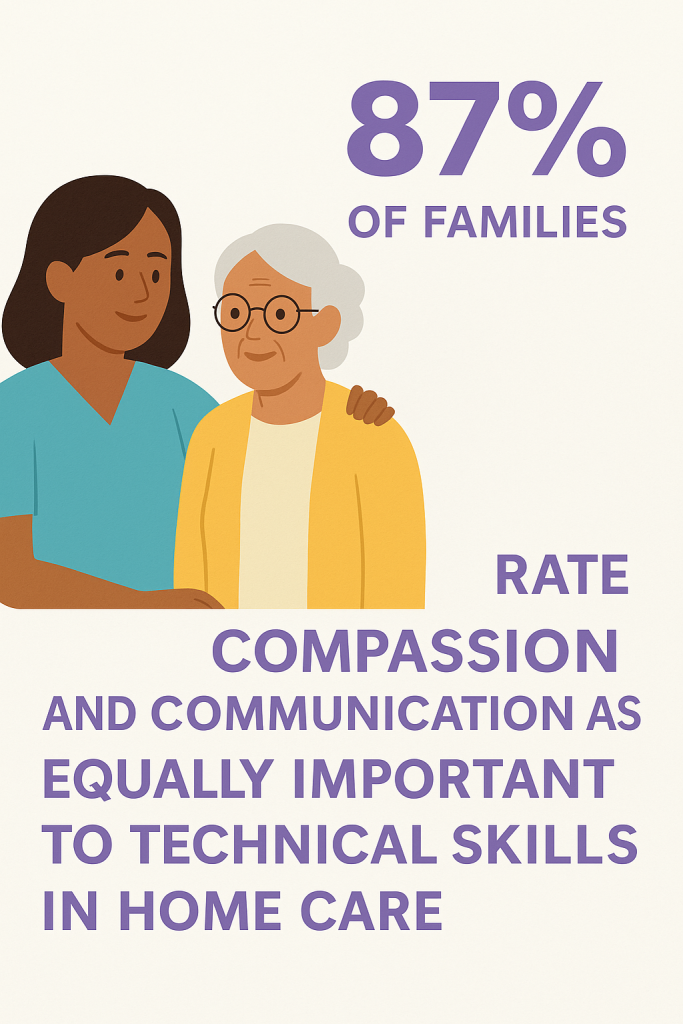
When we think of high-quality home care, it’s easy to focus on the “hard skills”: administering medication, assisting with mobility, managing medical equipment, or following care plans. These are essential—without them, seniors wouldn’t receive the technical care they need to live safely at home.
But what truly separates good care from exceptional care often has little to do with technical skill and everything to do with how practitioners connect with seniors on a human level.
The Impact of Soft Skills
Research consistently shows that the quality of the caregiver–client relationship plays a central role in satisfaction and trust. A recent Home Care Ontario survey found that 87% of families rated “compassion and communication” as equally important to technical skills when evaluating their caregiver.
Other findings back this up:
-
- Over 70% of seniors report that emotional support and companionship are just as important as physical care.
- Families are 40% more likely to request repeat care from practitioners who demonstrate patience, empathy, and active listening.
- Practitioners who blend technical skill with strong interpersonal skills contribute to higher client retention and overall satisfaction rates.
Hard Skills + Soft Skills = Holistic Care
Hard skills ensure safety. Soft skills ensure dignity. Both are needed for high-quality home care.
Some examples of how this balance plays out:
-
- Administering medication (hard skill) while explaining clearly what it is and offering reassurance (soft skill).
- Assisting with mobility (hard skill) while maintaining respect and encouraging independence (soft skill).
- Monitoring health changes (hard skill) while communicating observations in a supportive, calming way (soft skill).
Why This Matters
Seniors often face anxiety, isolation, or vulnerability in their daily lives. The way practitioners interact—tone of voice, patience, kindness—can make all the difference. At the same time, families gain peace of mind knowing their loved one is not just cared for, but cared about.
As the home care sector evolves, it’s clear that the practitioners who succeed will be those who combine technical knowledge with the ability to build trust, connection, and comfort.
Because in home care, how care is given matters just as much as what care is given.

